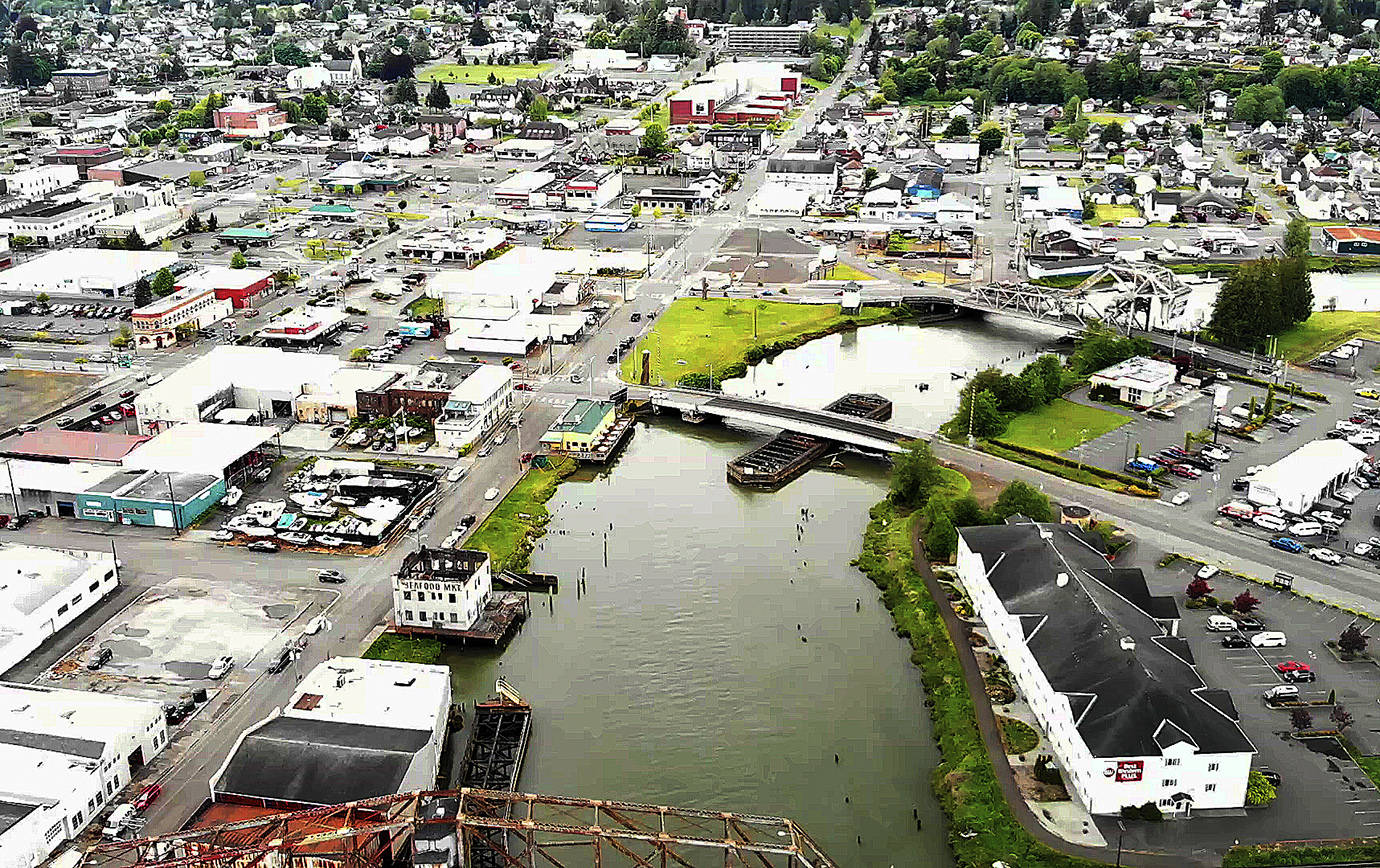Congressman Derek Kilmer has requested funds for several local projects — including Aberdeen and Hoquiam flood protection and east Aberdeen rail separation — as Congress puts together national infrastructure legislation.
Kilmer visited, virtually, four Grays Harbor County city councils last week, starting with Westport and Hoquiam on May 24, winding up with Aberdeen and McCleary on May 26, saying the Biden administration has given him and other representatives the chance to request funding for specific high priority community and transportation projects within their districts.
“This is the first time in more than a decade in which members of Congress can advocate for local projects,” said Kilmer to the Hoquiam City Council May 24. “We’re allowed to make 10 requests in the appropriations process … and not surprising to all of you, among the top is a request for funds for the flood protection project and improving storm drainage systems. We know that’s important to see housing developed and reduce the economic impact of flooding.”
Kilmer’s list requests $3 million to “provide coastal flood protection and improve the storm drainage systems in the cities of Aberdeen and Hoquiam, so that they can more effectively collect and convey runoff from intense storm events, and significantly reduce the economic burden on the community caused by flooding.”
Those efforts include the North Shore Levee, a flood protection barrier that will run about 4 miles from the west side of the Wishkah River west to the Hoquiam River.
“This levy project as we all know is extremely important to the community, and city and Port staff have put a tremendous amount of effort into this project, including getting information to you, Rep. Kilmer, so we can get this completed,” Aberdeen Mayor Pete Schave said to Kilmer on May 26.
“The economic future of this area depends on it, as well as the Port.” Schave thanked Kilmer for his support of the project, adding, “There is no way we’d be as far along as we are without your help.”
Recently, House Committee on Transportation and Infrastructure Chairman Pete DeFazio announced the committee will formally accept requests for projects from House members. Kilmer’s list includes a $2.08 million request for the east Aberdeen rail separation project, and $2.2 million for restoration of Aberdeen’s Heron Street Bridge.
“The rail separation project is extremely important to the future of commercial development in this community and our Port,” said Schave. It would separate train and vehicle traffic on Highway 12 through east Aberdeen, incorporating a large roundabout and overpass, to greatly reduce traffic delays caused by Port-bound trains.
Kilmer’s position on the U.S. House Appropriations Committee gives him the opportunity to directly promote some district-specific projects.
“Now is the time of year when House Appropriations decides how to invest in programs, and as a member of that committee I’m pushing for expanded broadband service, improved health care services, investments in coastal resiliency,” said Kilmer.
“Earlier today we had a hearing with the U.S. Army Corps of Engineers and one of the topics brought up was issues related to flooding. I’ve been pushing for additional funds for early warning systems for national disasters, affordable housing,” and pressing for more funding for the Forest Service to support increased responsible harvest of timber in the Olympic National Forest.
Kilmer said the Biden administration has allocated $110 billion “to bridge the digital divide,” filling in gaps in broadband coverage, the importance of which was amplified, he said, with the switch to online learning during the pandemic. Aberdeen Councilman Nathan Kennedy asked if some of that funding would be available for municipalities and other providers; Kilmer said just who will get the funding is still being determined.
In terms of coastal resiliency, Kilmer’s list of 10 funding requests includes about $4 million to help Indian tribes in the region move their villages to higher ground.
That includes a $500,000 request for the Quinault Indian Nation to “provide critical infrastructure, including streets, sewer, water, stormwater, and power utilities that are needed to develop the Quinault Indian Nation’s first neighborhood above the tsunami zone for approximately 70 families as part of their relocation efforts.”
It also includes a $2.2 million request for the Hoh Tribe’s relocation development.
“This funding will allow the Tribe to build out essential infrastructure and bring sufficient electrical infrastructure to each commercial, governmental, and residential lot in the Upper Highlands and connect water and sewer lines to the existing reservation system as the Tribe relocates to escape the imminent dangers of coastal flooding,” read the request.
He’s requested just shy of $1.5 million for the Quileute Tribe in La Push to “help finish the development of a reliable water source for the Quileute Tribe as they seek to move their communities to higher ground to escape the imminent dangers of tsunami inundation.”



